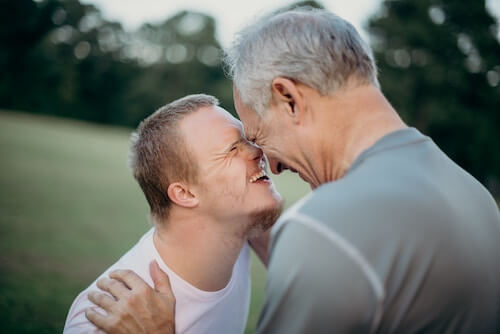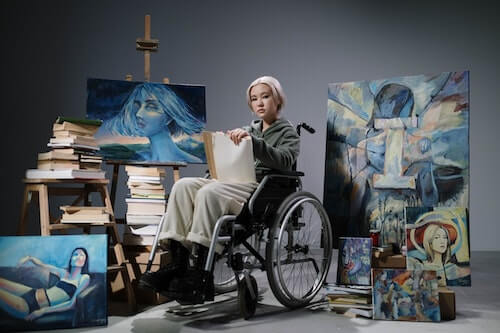Creating a More Inclusive Society for People With Disabilities

©
As time goes by, our society is growing increasingly inclusive and aware of the mistakes made in some previous times. This is more than commendable since our world has more than enough resources and human potential to make life dignified and enjoyable for all persons, regardless of the challenges they might be facing.
Making the world more inclusive toward people with various disabilities and allowing them to live their lives in a fulfilled and streamlined manner makes an integral part of this transformative process.
Let us then take a look at a couple of simple things anyone can do to take part in this endeavor and make our society if only a bit more inclusive and accepting.
Avoiding harmful stereotypes
Sometimes, even the efforts to help someone can cause more harm than good if these efforts are misguided or based on wrong assumptions. So, despite the courage to help people with disabilities we often tend to put all of them under a stereotypical umbrella and treat them according to some arbitrary standards.
That is a big mistake since all these people are individuals with different needs and conditions. Investing enough time to get to know these people, learning about their conditions, and asking before providing assistance can go a long way in preventing often hurtful stereotypes.
Try to support what people do instead of controlling them
This topic closely relates to the one we just covered above. According to accepted practices, a person with condition X needs to perform a Y activity in a set Z manner. While this can make countless lives easier thanks to the growing disability-inclusive infrastructure, we shouldn’t limit the people using this infrastructure strictly to this option.
Therefore, instead of effectively controlling people with disabilities, we should always try to support them on both an emotional and practical level. Life without a right to self-determination can never be considered neither happy nor fulfilled.
Creating a trusted support network
Trying to improve someone’s life with only your personal resources can quickly drain you out and do nothing of value for the person you love. So, if you know some persons with disabilities who truly want to help them out, do that by creating a support network.

This way, people will always have someone to take them to a professional NDIS occupational therapist or simply talk to them even when they don’t have time to. Remember, all of us strive for some sort of independent living. We should never undermine someone’s efforts to achieve that by making them dependent on us.
Lead by personal example
This applies both to approaching people with disabilities and gradually transforming the community. In both these cases, people around you will be able to feel your anxieties and negative emotions even if you don’t put them into exact words. That is why you should start changing the world by changing yourself, practicing mindfulness, and getting a better grasp on your emotions.
Becoming happier, more hopeful, and more open-minded will infect people around you as well. Some will be inspired to make steps toward greater independence, and others to help them out. All these changes start within you.
Start beneficial community activities
We have to underline here that these activities don’t necessarily need to revolve around charity, although charity work can do nothing but elevate your community. We are talking more about activities where people with disabilities will get an opportunity to make tangible contributions, demonstrate their talents, and take part in community-level decision-making.

Such activities are not only tremendously important for encouraging social interactions. It also allows participants to grow mutual confidence, learn more about others’ strengths, and embrace more diverse worldviews.
Put the focus on personality, not disability
Last but not least, we would like to remind you that disabilities make part of others’ lives, but only a fraction. Besides this aspect, all those people have their individual identities, hopes, hobbies, and romantic relationships.
Defining them by their disability, changing your demeanor when you are in their presence, or appearing to be stressed or stiff, strips the theme of these personal traits. Defining them by one single attribute is incredibly dehumanizing. Do your best then to treat them only by their personalities and let other distinctions fade away.
Wrapping up
We hope these couple of suggestions gave you an idea about how even the smallest efforts or changes of perception came to vast improvements in others’ lives. The most important thing to keep in mind here is that people with disabilities don’t necessarily ask for anyone’s help or even support.
They only need a chance to live happy, independent, and fulfilled lives, as well as be treated on the same terms as all other citizens. Starting out with these small changes can completely overhaul the world we inhabit.



